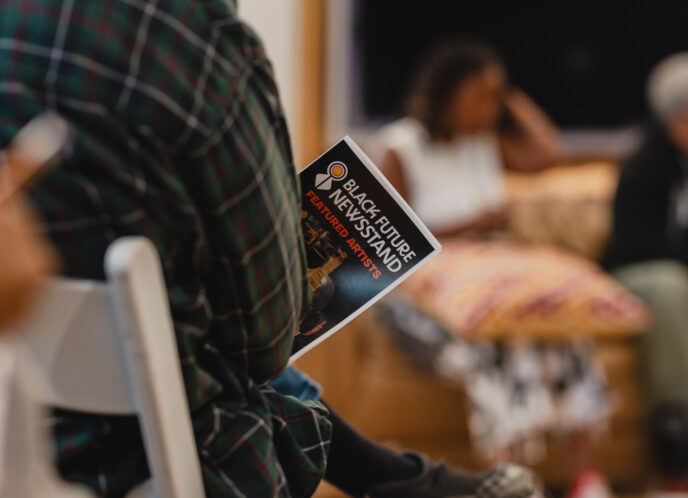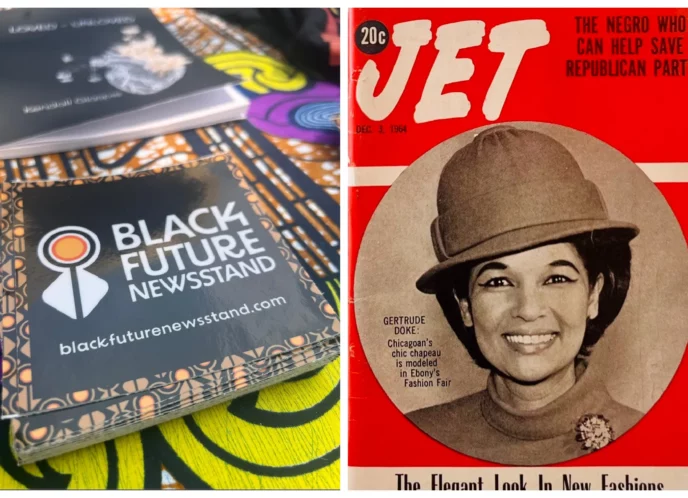On October 23rd, technologists, educators, journalists, human and social rights activists, government officials and funders gathered for Wired for Change: The Power and the Pitfalls of Big Data at the Ford Foundation in New York City. This was the second Wired for Change conference bringing together many returning participants and several first-timers, including myself and others representing the Media Action Grassroots Network.
 The day was filled with panels and presentations examining numerous issues concerning 'big data' and its impact on privacy, human rights, the media and urban communities.
The day was filled with panels and presentations examining numerous issues concerning 'big data' and its impact on privacy, human rights, the media and urban communities.
Big data, the vast and complex collection of data, mostly gathered about us and our digital interaction with the world, often as consumers, has the potential for both moving society to a more equitable place or inflicting greater injustice to a world already divided by class and race. Can online music profiles be shared with financial institutions to redline homebuyers because they're partial to R&B and Rap? Or can big data allow the elderly the dignity to age in their own homes through networked devices?
Speakers from the opening panel responded to a question asking what they feared most about big data. Mobile phone companies with their unchecked power and considerable capacity for collecting vast amounts of location, consumer and personal communications data raised alarms alongside fears of greater private and government control of both big data and the Internet it travels on.
The split between the good and the evil of big data was a recurring theme throughout the day. It was demonstrated by the overlooked story from the massive 2011 earthquake in Japan, when minutes before the earthquake sensors were able to stop all Japan's hi-speed bullet trains preventing further damage and loss of life. However the harm and benefits of a GPS “black box” (offered by Progressive Auto Insurance to inform parents where their teenager is taking the family car) could be perceived differently by members of the same household. Parents could enjoy lower insurance premiums but would their children appreciate being tracked and monitored?
Several speakers throughout the day were quick to acknowledge that big data is meaningless if not connected to a human narrative. What is the story that all this data tells us?
Visualizations were presented to illustrate various analyses of big data and help compose a narrative. Graphic maps and tables used to compare economic growth and stagnation between different countries could also scrutinize media coverage of the Trayvon Martin killing in Florida last February. This tragic killing- initially a local news report with little national coverage- grew into an international story examining Florida's 'Stand your Ground' law and disclosing the conservative organization behind the legislation, the American Legislative Exchange Council (ALEC). Charts and diagrams weaved the path of the story as it moved from local coverage to online reports by African-American journalists to the right-wing smear campaign of the Drudge Report and then to Paul Krugman's op-ed in the New York Times. The digital journey for a news story becomes part of the narrative too.
Graphic maps and tables used to compare economic growth and stagnation between different countries could also scrutinize media coverage of the Trayvon Martin killing in Florida last February. This tragic killing- initially a local news report with little national coverage- grew into an international story examining Florida's 'Stand your Ground' law and disclosing the conservative organization behind the legislation, the American Legislative Exchange Council (ALEC). Charts and diagrams weaved the path of the story as it moved from local coverage to online reports by African-American journalists to the right-wing smear campaign of the Drudge Report and then to Paul Krugman's op-ed in the New York Times. The digital journey for a news story becomes part of the narrative too.
 The day closed with the hilarious insights of Baratunde Thurston, the technology-loving comedian and author of How To Be Black. From tracking the word “racist” on social media websites to declaring Monday the most racist day of the week because we leave our familiar, insular and segregated trappings of home and go to work, Thurston was spot-on with his political observations creating spoofs that seemed perfectly rational. A killer app to track, monitor, quantify and visualize how cozy our elected officials are with Washington lobbyists. Yeah, I think I'd download and accept the terms for that app. You hear me now, Chuck Schumer?
The day closed with the hilarious insights of Baratunde Thurston, the technology-loving comedian and author of How To Be Black. From tracking the word “racist” on social media websites to declaring Monday the most racist day of the week because we leave our familiar, insular and segregated trappings of home and go to work, Thurston was spot-on with his political observations creating spoofs that seemed perfectly rational. A killer app to track, monitor, quantify and visualize how cozy our elected officials are with Washington lobbyists. Yeah, I think I'd download and accept the terms for that app. You hear me now, Chuck Schumer?
 Carlos Pareja is a media educator, activist and filmmaker who has collaborated with many social justice and grassroots organizations on media education, community journalism and digital storytelling projects. He has worked with numerous media non-profits including Paper Tiger Television, the Educational Video Center, Brooklyn Community Access TV and People's Production House. He is a firm believer that access to media creation tools, knowledge of media production technique and open distribution platforms are key to a functional democracy.
Carlos Pareja is a media educator, activist and filmmaker who has collaborated with many social justice and grassroots organizations on media education, community journalism and digital storytelling projects. He has worked with numerous media non-profits including Paper Tiger Television, the Educational Video Center, Brooklyn Community Access TV and People's Production House. He is a firm believer that access to media creation tools, knowledge of media production technique and open distribution platforms are key to a functional democracy.


